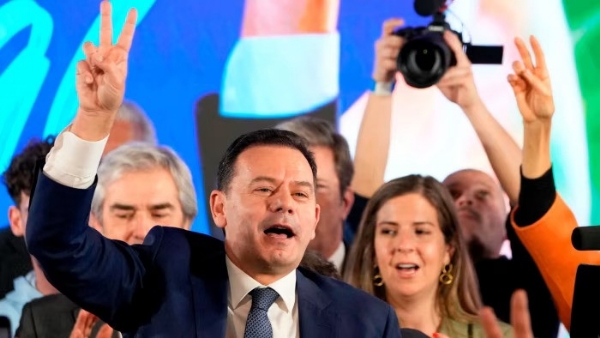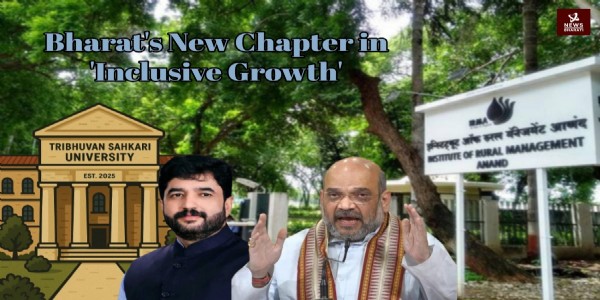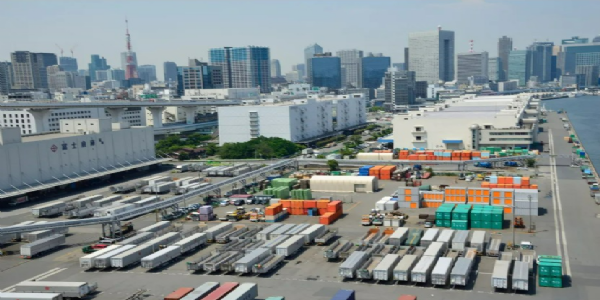Portugal's centre-right coalition secures narrow win; How could this reflect on India?
In a scenario where Portugal"s center-right coalition secures a narrow win against a radical right party, the impact on its relations with India would likely depend on several factors;
Total Views | 178
Lisbon, Mar 11: Portugal witnessed a closely contested snap election on Sunday, resulting in a narrow victory for the centre-right Democratic Alliance coalition, CNN reported. Despite securing 29.5 per cent of the votes, the coalition fell short of an outright majority, setting the stage for intricate negotiations and potentially leading to further elections.

The radical right party, Chega, led by Andre Ventura, made significant strides by garnering nearly a fifth of the vote with 18 per cent, marking a breakthrough for the fledgling party. As the results unfolded, Democratic Alliance leader Luis Montenegro claimed victory in the early hours of Monday, reiterating his reluctance to collaborate with Chega. However, within his party, there was a spectrum of opinions, leaving the door open for potential alliances.
The political landscape appears to be heading toward challenging negotiations in the coming days and weeks, with the possibility of a hung parliament and the potential inclusion of Chega as a kingmaker in a coalition government, according to CNN.
What could be its impact on India-Portugal relations?
In a scenario where Portugal's center-right coalition secures a narrow win against a radical right party, the impact on its relations with India would likely depend on several factors:
1. Political Alignment and Cooperation: If the center-right coalition in Portugal shares political values and ideologies more closely with the NDA (National Democratic Alliance) government in India, it could facilitate smoother diplomatic relations. Similar political ideologies may lead to better understanding and cooperation on various issues.
2. Trade and Economic Relations: Portugal's political stability and alignment may influence economic ties with India. A center-right government might prioritize economic growth and trade partnerships. The NDA government in India has shown a commitment to economic development, and shared economic interests could strengthen bilateral relations.
The Portuguese go to the polls on Sunday after eight years of socialist rule, and recent polls predict a victory for the AD [conservative coalition including the centre-right PSD], which is expected to win 32.6 percent of the votes https://t.co/O93E2AcNbU
— EUobserver (@euobs) March 8, 2024
3. Cultural and Historical Ties: Portugal and India share historical ties due to their colonial past. A stable political environment in Portugal could provide a conducive atmosphere for nurturing cultural and historical connections. The governments might engage in collaborative efforts to preserve and promote shared heritage.
4. Global Security Cooperation: The political alignment between Portugal and India may impact collaboration on global security issues. Common values and strategic interests could lead to increased cooperation in areas such as counter-terrorism, maritime security, and international peacekeeping efforts.
5. European Union Dynamics: Portugal being a member of the European Union (EU), its political situation can influence EU policies. The EU's stance on various international issues, including relations with India, may be affected by the political composition of member states.
It's important to note that political dynamics are multifaceted, and the actual impact on relations would depend on the specific policies, decisions, and priorities of the governments involved. Additionally, real-world geopolitical scenarios can be influenced by a wide range of factors beyond political ideology, such as economic considerations, global events, and public opinion. For the most accurate and up-to-date analysis, it's recommended to refer to recent news sources and expert commentaries.
What would be the impact of Portugal's radical right party in power?
1. Shift in Foreign Policy: A radical right government might adopt a more nationalist and assertive foreign policy stance. This could impact diplomatic relations and cooperation with other countries, including India. Nationalist ideologies might prioritize certain bilateral issues and reshape the nature of international engagements.
Also read: "Indian Navy synonymous with credibility in Indo-Pacific", remarks Defence Minister Rajnath Singh
2. Economic Policies: The economic policies of a radical right government might prioritize protectionism, nationalism, and a focus on domestic industries. This could influence trade relations with India and potentially lead to renegotiations or adjustments in existing economic agreements.
3. Impact on Multilateral Relations: A radical right government may take a more skeptical approach towards multilateral organizations and agreements. This could impact Portugal's role in the European Union and other international forums, potentially affecting collaborative efforts with India on global issues.
Centre-right PSD wins the election in #Portugal 🇵🇹. Far-right CHEGA doubled its score, largely due to concerns related to rising immigration. But the PSD leader excluded coalition with the party, hoping for acceptance of his government by the socialists. https://t.co/m1crEOVMvC
— Jan Linkowski (@JanekLinkowski) March 11, 2024
4. Security and Immigration Policies: Radical right parties often emphasize issues related to national security and immigration. This could influence cooperation on security matters, counter-terrorism efforts, and discussions on migration policies. The impact on India-Portugal relations would depend on the specific policies adopted.
5. Cultural and Social Dynamics: A radical right government may emphasize cultural and social conservatism. This could influence collaborative efforts on cultural exchanges and educational partnerships between Portugal and India.
6. European Union Relations: As a member of the European Union, Portugal's political orientation could influence its position within the EU. A radical right government might take a different stance on EU policies, potentially affecting the overall cohesion and direction of the union.
--
Bharati Web







